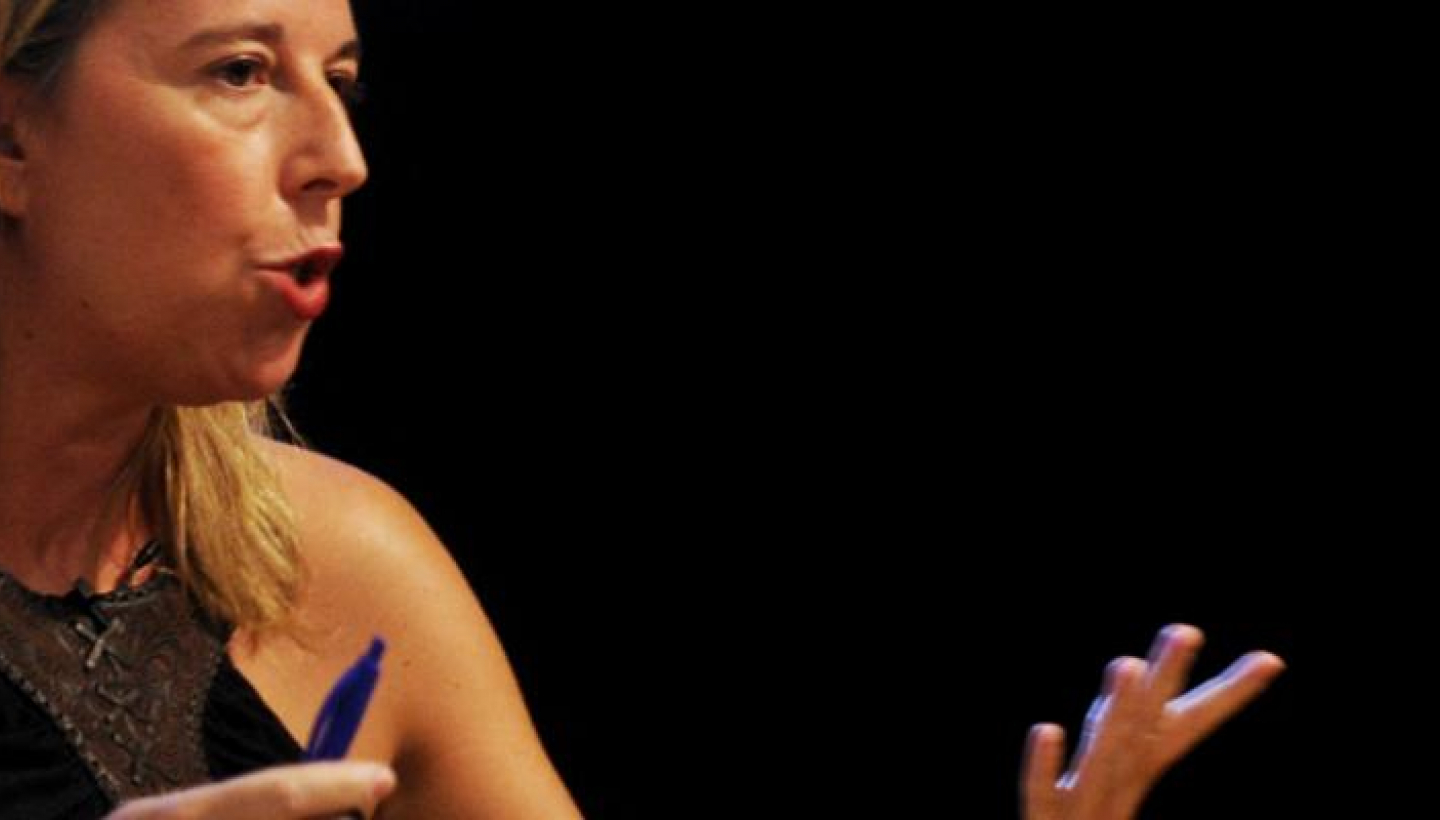Patricia Fernández de Lis is a journalist specialized in science. After working for newspapers such as El País and Público, in 2012 she became director of Materia, a publication on science and technology information which continues to establish itself as a referential website. She also received the Mario Bohoslavsky "Association for the Advancement of Critical Thinking" Award in 2011 for her contribution towards the fight against pseudoscience.
Materia joined on September 19 to recognize leaders in science and organized the first "Saving Science" meeting, where different solutions were discussed to promote popular science.
Opinno. What were the reviews like for Materia’s “Saving Science"?
Patricia Fernández de Lis. We are really happy, especially from the quantitative point of view. There were nearly 300 people and we filled the Caixa Forum; 6,000 people streamed the conference and we were the trending topic in Spain... significant data for an event on how to save science. We also had the feeling that something was missing. We are at a crucial point of research in Spain, a context in which budgets have been cut in an obscured way by governments but now it is being done radically, and one in which these cutbacks do not motivate the masses (as much as healthcare and education) and that is why the political class does not pay as much attention to it. I thought it was time to bring together well-known scientists that were on stage with the young members in the audience. Both were eager to shout their opinions and motivate citizens so that the political class could give a response which has taken very long to be given. Also, another important note was that scientists often limit their vision to their field of work, making it difficult for them to have a general vision. The meeting was a dose of self-criticism by speaking about: scientists as staff members of research centers, interbreeding, bureaucracies ... many things they simply just sign up for, but I think it can serve for future meetings to complete the vision of what can be done to improve the management of science in Spain.
O. How do you view the panorama of popular science?
P.d.L I think it has improved a lot in recent years, especially after the arrival of the internet. Before that it was a ghetto where only very specific people (scientists or specialized journalists) expressed themselves and the emergence of the internet has led to a burst of information and, in fact, the internet is now the primary source of information. This represents an opening for journalists as we try to give rigorous, quality information to and for scientists who are eliminating their panic of disclosing information on what they do. Problems remain within the poor scientific culture of the Spaniards; meaning a low perception of the values of science and innovation. It is very difficult to reach the general public. The diffusion of science requires much time, space and experience, and those things are getting worse in highly publicized media.
O. What do you think would be the solution if we advance in science communication but mainstream media doesn’t make space for it?
P.d.L We are trying to find a solution proactively. Materia was created with the explicit intention of being a medium for everyone. We do it in a very practical way: all our content is free to republish. Our idea is to break the barriers of our website and get to places where people are. We know that reaching the Materia website is complicated, but we want science information to reach people. We have therefore made arrangements with the media in Latin America, Yahoo in Spain and Latin America, Antena 3, Cadena Ser...to automatically republish our contents in full. This way we intend on having the major media companies lend a hand in the diffusion process. Furthermore, they have very few specialized journalists and feel insecure about popular science, which is why we offer our information.
O. Opinno is strongly linked to entrepreneurship and technological innovation, as a specialized journalist... what is your perception of the entrepreneurial ecosystem in Spain?
P.d.L Unfortunately it is not a country for entrepreneurs. It is a very complicated country to engage in a business venture for two reasons: lack of funding and lack of public support. It something you read everywhere and we have learned this when we start a company. But the only way out of the crisis is through innovation because the only proven way for sustainable growth is through R & D & i (Research, Development and Innovation) and these barriers must be broken, thus requiring younger people to innovate so they are capable of not only finding jobs but also creating them.
O. And to get to know you better ... a book.
P.d.L "Decisive Moments in History" by Stefan Zweig.
O. A journalist?
P.d.L Felix Monteira, former Director of Público and Deputy Director of El País.
O. A scientist?
P.d.L It’s cliché, but I just finished reading his biography and I loved it: Albert Einstein.
O. Your best interview?
P.d.L Eric Schmidt, chairman of Google.
O. An impossible interview?
P.d.L Steve Jobs.
O. And a headline?
P.d.L "Science Becomes Spain’s Highest Political Priority", for example.



